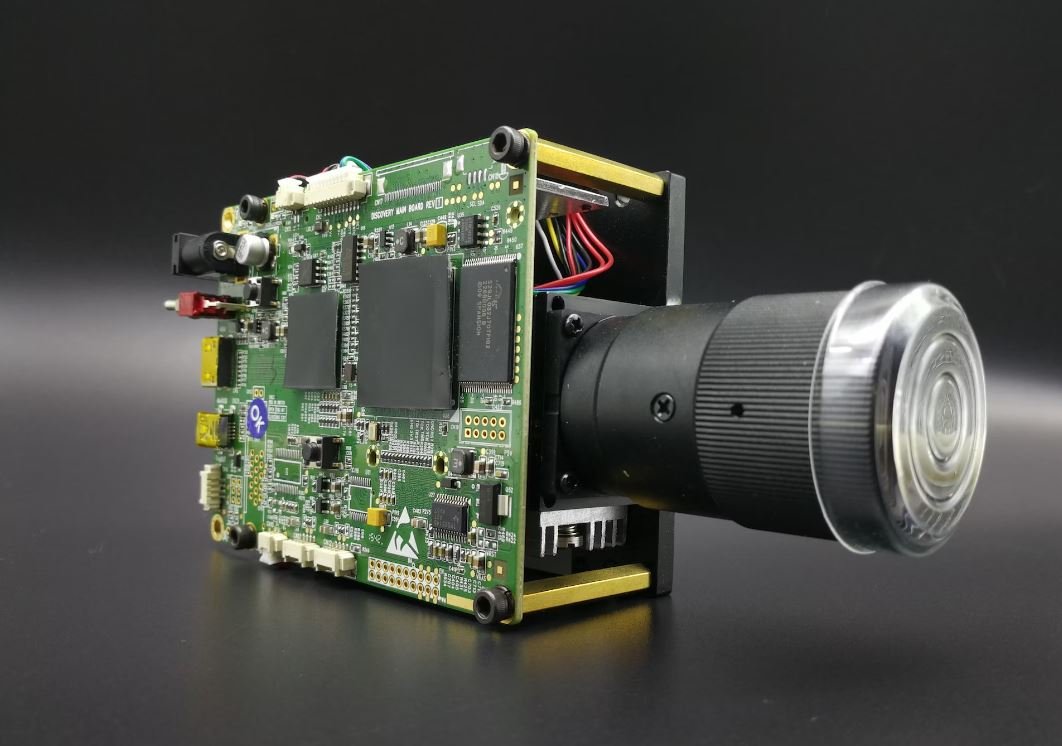Can AI Develop Software?
Artificial Intelligence (AI) has revolutionized many industries, and software development is no exception. With the increasing sophistication of AI technologies, developers and organizations are exploring whether AI can be used to develop software effectively. This article will delve into the topic of AI software development, exploring its potential benefits, challenges, and the current state of the technology.
Key Takeaways:
- AI can aid in software development by automating repetitive tasks, improving efficiency, and enhancing productivity.
- AI software development is still in its early stages but holds great potential for future advancements.
- Challenges in AI software development include ethics, bias, and the need for human oversight and control.
The Role of AI in Software Development
AI technologies, such as machine learning and natural language processing, can be leveraged in software development to streamline various processes. *AI can analyze vast amounts of data* and generate insights to aid developers in making informed decisions. Additionally, AI can automate repetitive tasks, such as code generation and testing, improving efficiency and reducing human error.
One interesting application of AI in software development is the use of AI-powered coding tools. These tools, often referred to as “AI-assisted coding,” help developers write code more accurately and efficiently. By analyzing existing codebases and patterns, AI can suggest code snippets, autocomplete lines, and identify potential bugs or vulnerabilities.
Current State of AI Software Development
While AI software development is still in its early stages, several notable advancements indicate its potential for the future. Companies like OpenAI have developed AI models capable of generating functional code snippets based on natural language descriptions. *This breakthrough demonstrates the progress AI has made in understanding and replicating human-like coding abilities*.
However, AI development currently relies on human programmers to label and curate training data, which can introduce biases and shortcomings in the resulting AI models. Additionally, ethical considerations surrounding AI software development, such as the potential impact on employment and the responsibility for AI-generated code, need to be addressed.
Benefits and Challenges
AI software development offers several potential benefits, including:
- Automated code generation and testing
- Improved productivity and efficiency
- Enhanced accuracy in code writing and analysis
However, there are also challenges associated with AI software development:
- Ensuring ethical use of AI and avoiding biases
- Preserving the role of human developers and their creativity
- Maintaining human oversight and control over AI-generated code
Current Statistics on AI Software Development
| Statistics | Numbers |
|---|---|
| Number of AI-assisted coding tools | Over 200 |
| Percentage of developers adopting AI tools | 45% |
| Projected market value of AI in software development by 2025 | $15 billion |
In conclusion, AI has the potential to significantly impact software development by automating tasks, improving efficiency, and enhancing productivity. While current AI software development technologies are still in their early stages, they hold great promise for future advancements. However, ethical considerations, biases, and human oversight must be carefully managed to ensure responsible and beneficial use of AI in software development.

Common Misconceptions
AI can replace software developers
One common misconception about AI is that it has the ability to completely replace software developers. While AI can automate certain aspects of software development and assist developers in tasks, it cannot fully replicate the creative thinking and problem-solving capabilities of a human developer.
- AI can automate repetitive tasks in software development.
- AI can assist in finding patterns and suggesting solutions.
- AI still requires human supervision in developing complex software algorithms.
AI software will be perfect and bug-free
Another misconception surrounding AI software development is that it will result in perfect and bug-free applications. Although AI can help in detecting and fixing certain types of bugs, it is not infallible and can sometimes introduce new types of errors into the code.
- AI can automate the detection of certain types of bugs.
- AI can help in identifying patterns that lead to errors.
- AI software still needs thorough testing and debugging for quality assurance.
AI can replace the need for human involvement
Some people believe that AI software development can be done without any human involvement once the initial setup is complete. This is a misconception as human intervention is necessary throughout the development process to ensure that the AI algorithms are trained properly, validated, and monitored for accuracy.
- Human involvement is crucial in training and validating AI algorithms.
- Human supervision ensures that the AI is functioning as intended.
- Human input is needed to address any ethical or legal concerns related to AI development.
AI development is straightforward and easy
There is a misconception that AI software development is straightforward and easy due to the availability of AI tools and frameworks. However, developing AI applications requires a deep understanding of algorithms, data science, and programming, making it a complex and challenging task.
- AI development demands a strong knowledge of algorithms and data science.
- AI programming requires expertise in handling large datasets and complex models.
- AI development may involve trial and error and iterative improvements.
AI will take over all software development jobs
One of the major misconceptions about AI development is that it will eventually take over all software development jobs, rendering human developers obsolete. While AI can automate certain tasks, there will always be a need for human creativity, critical thinking, and problem-solving skills in developing complex software applications.
- AI cannot replicate human creativity and critical thinking.
- AI can only assist in specific tasks, not replace human developers entirely.
- New opportunities will arise as AI technology continues to advance in the software development field.

Can AI Develop Software?
Advances in artificial intelligence (AI) have revolutionized various industries, from healthcare to finance. One increasingly explored domain is software development itself. The question arises: can AI effectively develop software? This article analyzes ten interesting aspects of AI’s potential in software development, highlighting its abilities, limitations, and future implications.
1. Automated Coding
AI can automate parts of the coding process, improving efficiency and reducing human errors. However, developers remain crucial in understanding requirements and implementing complex logic. It’s vital to strike a balance between automated coding and human expertise to achieve optimal results.
2. Bug Detection
AI’s ability to analyze large codebases enables it to detect bugs and vulnerabilities, enhancing software quality. By reviewing patterns and understanding common coding mistakes, AI can identify potential errors and suggest improvements, ultimately enhancing code robustness.
3. Natural Language Processing
AI techniques such as natural language processing (NLP) play a vital role in facilitating communication between humans and computers. NLP allows developers to express their intentions in human language and have AI systems generate code accordingly, making software development more accessible.
4. Predictive Analytics
A combination of AI and predictive analytics can enable software development teams to estimate project timelines more accurately. By considering historical data, complexity factors, and resource availability, AI models can generate reliable forecasts, aiding in project management and decision-making processes.
5. Intelligent Code Completion
AI-based code editors and integrated development environments (IDEs) can suggest completions, reducing typing efforts and minimizing syntax errors. Such intelligent code completion systems can significantly boost developer productivity by providing context-aware suggestions.
6. Code Refactoring
AI systems can analyze existing codebases and suggest improvements that align with best coding practices and design patterns. These suggestions aid in code refactoring, enhancing code readability, performance, and maintainability, while reducing technical debt.
7. Testing Automation
AI-powered testing frameworks can automatically generate test cases, simulate user behavior, and detect potential defects. This accelerates the testing process, increases software reliability, and frees up developers’ time, enabling them to focus on more critical tasks.
8. Algorithmic Problem Solving
AI algorithms excel at solving complex problems with multiple constraints. In software development, they can be employed to optimize algorithms, improve efficiency, and find innovative solutions that might elude human developers.
9. Continuous Integration and Deployment
AI-based systems can streamline the continuous integration and deployment (CI/CD) pipeline, automating repetitive tasks, and identifying potential issues. This allows developers to release software more frequently, ensuring continuous delivery and faster time-to-market.
10. Ethical Considerations
As AI becomes more integrated into software development, it’s crucial to address ethical considerations. Developers must ensure transparency, accountability, and fairness in AI-generated code, avoiding potential biases and unintended consequences that could harm users or the broader society.
Conclusion
While AI’s role in software development is promising, it is not a complete substitute for human developers. Instead, AI serves as a powerful ally, augmenting human capabilities, improving code quality, and accelerating development processes. Striking a balance between AI and human expertise will shape the future of software development, enabling more efficient and innovative solutions.
Can AI Develop Software – Frequently Asked Questions
How does Artificial Intelligence (AI) contribute to software development?
Artificial Intelligence (AI) plays a vital role in software development by automating various tasks, improving development speed, enhancing code quality, identifying patterns, and generating code snippets or prototypes. It assists developers throughout the development lifecycle, from planning and coding to debugging and testing.
What are AI-powered tools used in software development?
There are various AI-powered tools used in software development, such as:
- Code editors with intelligent code completion and suggestions
- Automated testing tools that use AI algorithms to identify bugs
- Code generation tools that create code based on user input
- Bug tracking tools that use AI to prioritize and assign issues
- Machine learning frameworks for developing AI-powered applications
Can AI completely replace human software developers?
AI technology has advanced significantly, but it cannot completely replace human software developers. While AI can automate certain tasks and provide assistance, human developers bring creativity, critical thinking, problem-solving skills, and domain expertise to software development. AI and humans work together, complementing each other’s strengths and enhancing overall productivity.
What challenges does AI face in software development?
AI faces several challenges in software development, including:
- Lack of understanding complex business logic and user requirements
- Difficulty in interpreting ambiguous or incomplete specifications
- Limited ability to handle context-dependent decision-making
- Inability to replicate complete human creativity and innovation
- Concerns regarding ethical implications and biased decision-making
How can AI improve software quality assurance and testing?
AI can enhance software quality assurance and testing through:
- Automated test case generation and execution
- Identification of code smells and potential bugs
- Performance testing and analysis
- Regression testing and bug tracking
- Real-time monitoring and anomaly detection
Is AI capable of writing entire software applications?
While AI has shown promising results in generating pieces of code or assisting in certain tasks, it is not currently capable of writing entire software applications independently. AI can support developers by automating repetitive tasks and providing code suggestions, but it requires human guidance and expertise to ensure the software meets specific requirements and functions correctly.
What impact does AI have on software development productivity?
AI has a significant positive impact on software development productivity. By automating time-consuming tasks, code generation, and bug identification, AI helps developers save time and focus on higher-level tasks. It improves efficiency, accelerates development cycles, and enhances code quality, ultimately increasing productivity in software development teams.
What risks should be considered when using AI in software development?
When using AI in software development, some risks to consider include:
- Inaccurate or biased decision-making due to biased training data
- Dependency on AI algorithms that may have limitations or vulnerabilities
- Overreliance on AI, leading to potential loss of human expertise
- Security and privacy concerns related to AI-powered systems
- Ethical considerations regarding AI usage in software development
What is the future of AI in software development?
The future of AI in software development is promising. As AI technology advances, we can expect more intelligent tools and frameworks that further automate software development tasks, improve code generation, enhance testing, and support developers in creating innovative and complex software applications. However, the role of human developers will remain crucial in guiding, validating, and ensuring AI-powered systems meet user requirements.





